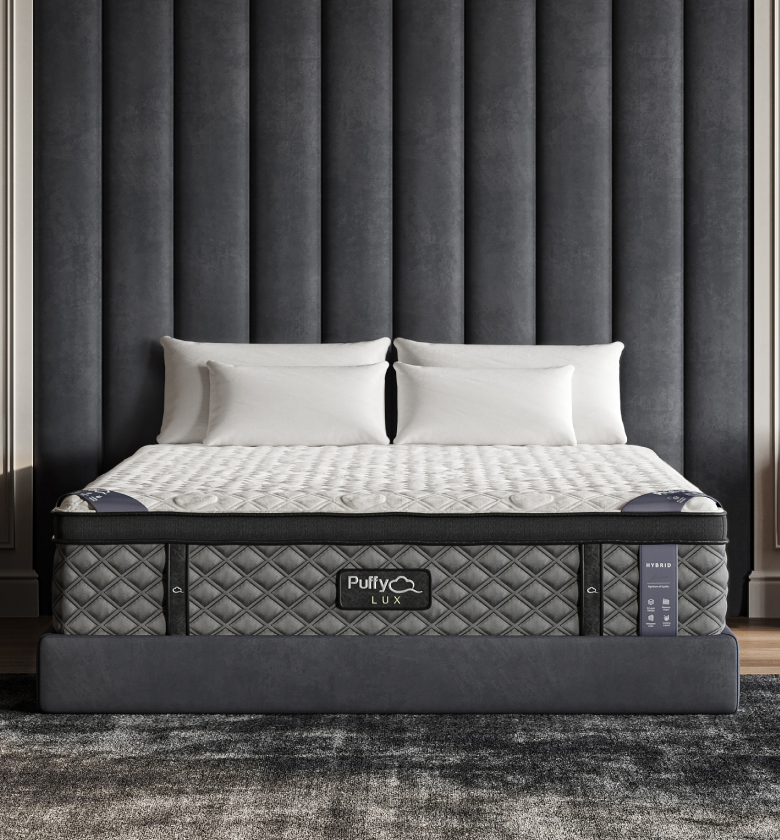Key Takeaways:
- Material Composition: Made from premium synthetic fibers designed to mimic down
- Comfort Features: Offers hypoallergenic properties with excellent warmth retention
- Care Requirements: Easy maintenance with machine-washable properties
- Value Proposition: Budget-friendly alternative to traditional down
- Selection Criteria: Important factors include fill power, construction, and cover material
A down alternative comforter combines modern technology with comfort, providing a synthetic solution that mimics the warmth and coziness of traditional down. This comprehensive guide will explore everything you need to know about these popular bedding choices, from materials to maintenance.
What Is Down Alternative Comforter Made Of?
Down alternative comforters are crafted using advanced synthetic materials designed to replicate the insulating properties of natural down. Here’s what goes into making these comfortable bedding solutions:
- Fill Material - Premium polyester microfibers engineered to create small air pockets for warmth retention and distribution. These specially designed fibers cluster together similarly to natural down.
- Cover Construction - Usually made with high-thread-count cotton or cotton-polyester blends that enhance durability and softness. The cover often features baffle box or sewn-through construction to keep fill in place.
- Innovative Design - Incorporates multiple layers of different density fibers to optimize warmth-to-weight ratio and ensure consistent comfort throughout the night.
Just as the Puffy Cloud Mattress uses advanced materials for optimal comfort, down alternative comforters employ innovative synthetic fills to deliver consistent warmth and coziness.
Is Down Alternative Comforter Good?
Down alternative comforters offer compelling benefits and performance features that make them an excellent choice for many sleepers. Let’s explore their key advantages:
Benefits and Advantages
Hypoallergenic Properties Perfect for allergy sufferers, with resistance to dust mites and other allergens. Particularly beneficial for those with asthma or sensitive skin who might react to natural down.
Easy Maintenance Machine washable and dryable at home, eliminating expensive dry cleaning costs. Maintains shape after washing and allows for simple spot cleaning when needed.
Cost-Effective Priced 40-60% lower than natural down ($60-$200 range), with reduced maintenance costs over time and no specialized cleaning requirements.
Consistent Performance Maintains even loft and distribution with proper construction, providing reliable warmth and predictable comfort throughout its lifespan.
Performance Features
Temperature Regulation & Moisture Control Advanced synthetic fibers provide consistent warmth zones while resisting moisture better than natural down. Available in different weights for seasonal comfort, with quick-drying properties ideal for humid environments.
Construction & Distribution Box-stitched or baffle-box construction keeps fill evenly distributed, preventing cold spots and clumping. Adapts well to different sleeping positions while maintaining consistent coverage.
Durability & Value Typical lifespan of 5-7 years with proper care. Synthetic fibers resist compression and wear, while strong construction prevents fill leakage. Offers excellent value through low maintenance requirements and reliable performance.
How to Choose a Down Alternative Comforter
Selecting the perfect down alternative comforter requires consideration of several key factors:
Essential Features to Consider
- Fill Weight: Ranges from lightweight (25-30 oz) to heavyweight (40-50 oz). Summer weights prioritize breathability, winter weights offer more insulation. Most brands use simple light-to-extra warm ratings.
- Construction Type: Box-stitch ensures even fill distribution, while baffle-box maximizes loft. Look for reinforced edges and quality stitching. Channel design allows more fill movement but risks shifting.
- Cover Material: Minimum 300-thread-count cotton or microfiber recommended. Cotton offers breathability, microfiber provides moisture-wicking. Higher thread counts indicate better durability.
- Size Options - Should extend beyond mattress dimensions
Warmth Ratings
- Light Weight - Perfect for summer or hot sleepers
- Medium Weight - Ideal for year-round use
- Heavy Weight - Best for winter or cold sleepers
How to Fluff a New Down Alternative Comforter
Proper fluffing techniques ensure optimal comfort and loft:
Initial Fluffing
-
Shake Method
- Initial Unpacking Remove comforter from packaging carefully to avoid tearing. Let it fall naturally and gently pull corners apart. Check for any manufacturing defects or damage while unpacking.
- Proper Shaking Technique Hold opposite corners firmly and snap the comforter with increasing force, like shaking a rug. Work systematically through all sections, paying special attention to areas that appear flatter. Repeat process 3-4 times from different corners.
- Air-Out Process Let the comforter breathe in a well-ventilated space for 24-48 hours, flipping occasionally. Outdoor airing on a clean line is ideal for removing manufacturing odors and achieving optimal loft.
-
Dryer Technique
- Preparation: Ensure clean lint trap and adequate drum space (comforter should fill max 2/3), check care label and inspect for any damage before starting.
- Temperature Settings: Use low/medium heat (130-140°F) on ‘fluff’ cycle for 10-15 minutes, avoiding high heat that could damage synthetic fibers.
- Dryer Ball Usage: Distribute 3-4 wool dryer balls or tennis balls evenly throughout comforter to break up clumps and reduce static.
- Monitoring Process: Check every 5-7 minutes for cold spots and even distribution, remove promptly when done and shake to restore loft.
Maintenance Fluffing
- Daily Care: Give a quick shake when making the bed - hold corners and snap upward to prevent fill settling and maintain even distribution.
- Weekly Care: Perform thorough shake-out, rotating through all corners. Focus on edges where fill migrates, and hang outside briefly if weather permits.
- Monthly Care - Run on low heat for 10 minutes with 3-4 dryer balls, followed by vigorous shake. Rotate head-to-foot and check for any compressed areas or wear signs.
Similar to how the Puffy Lux Mattress offers different comfort layers, down alternative comforters come in various weights and constructions to suit different needs.
Conclusion
Down alternative comforters offer an excellent blend of comfort, practicality, and value. Their hypoallergenic properties, easy maintenance, and consistent performance make them a smart choice for many sleepers.
By understanding their construction, benefits, and care requirements, you can select the perfect comforter for your needs and maintain its quality for years to come. Whether you prioritize easy care, allergy prevention, or cost-effectiveness, a down alternative comforter can provide the comfort and warmth you seek.

- 8 layers of cloudlike luxury.
- Medium-plush feel.
- Gel-infused cooling.
- 101-night sleep trial.












